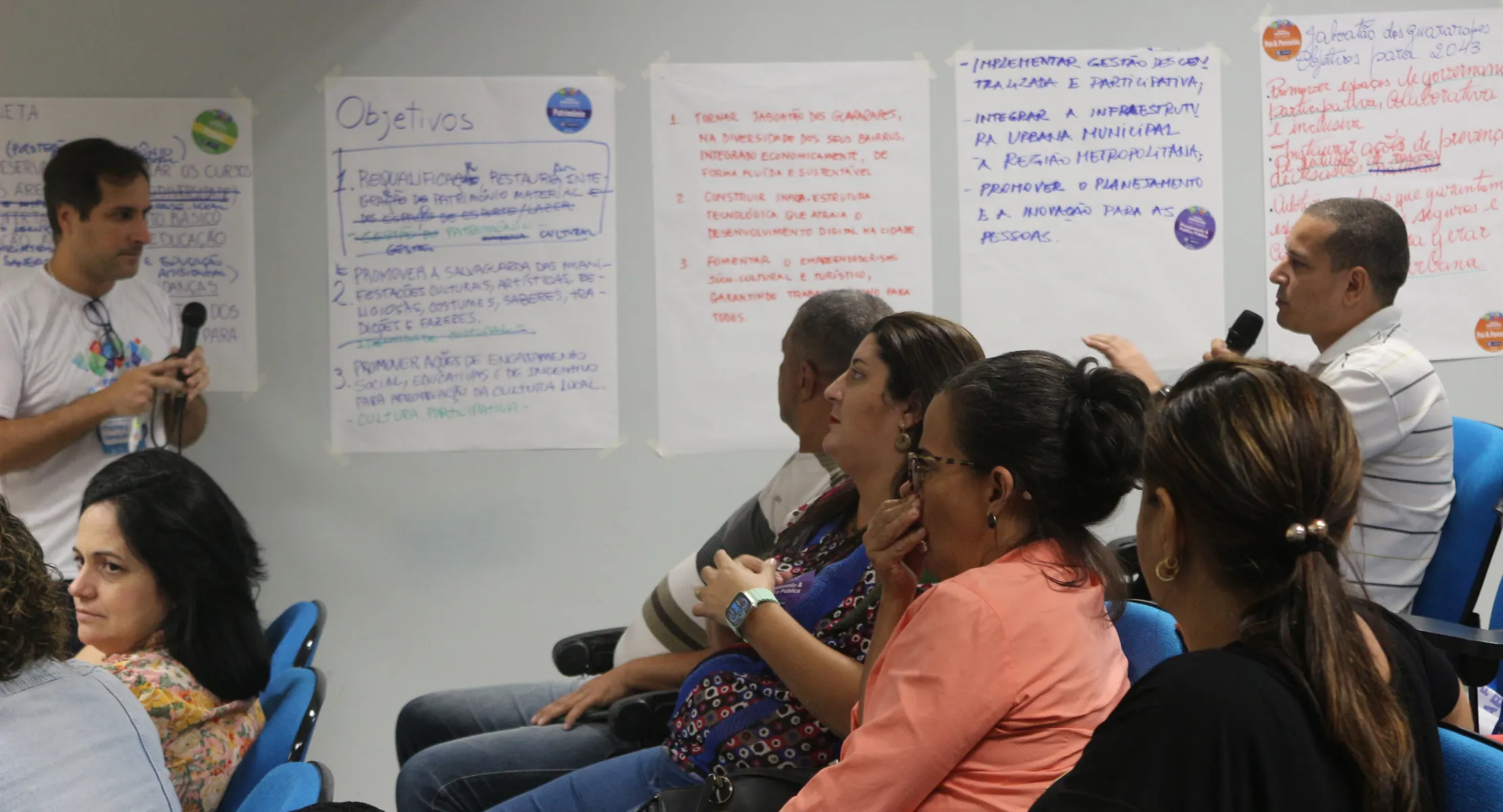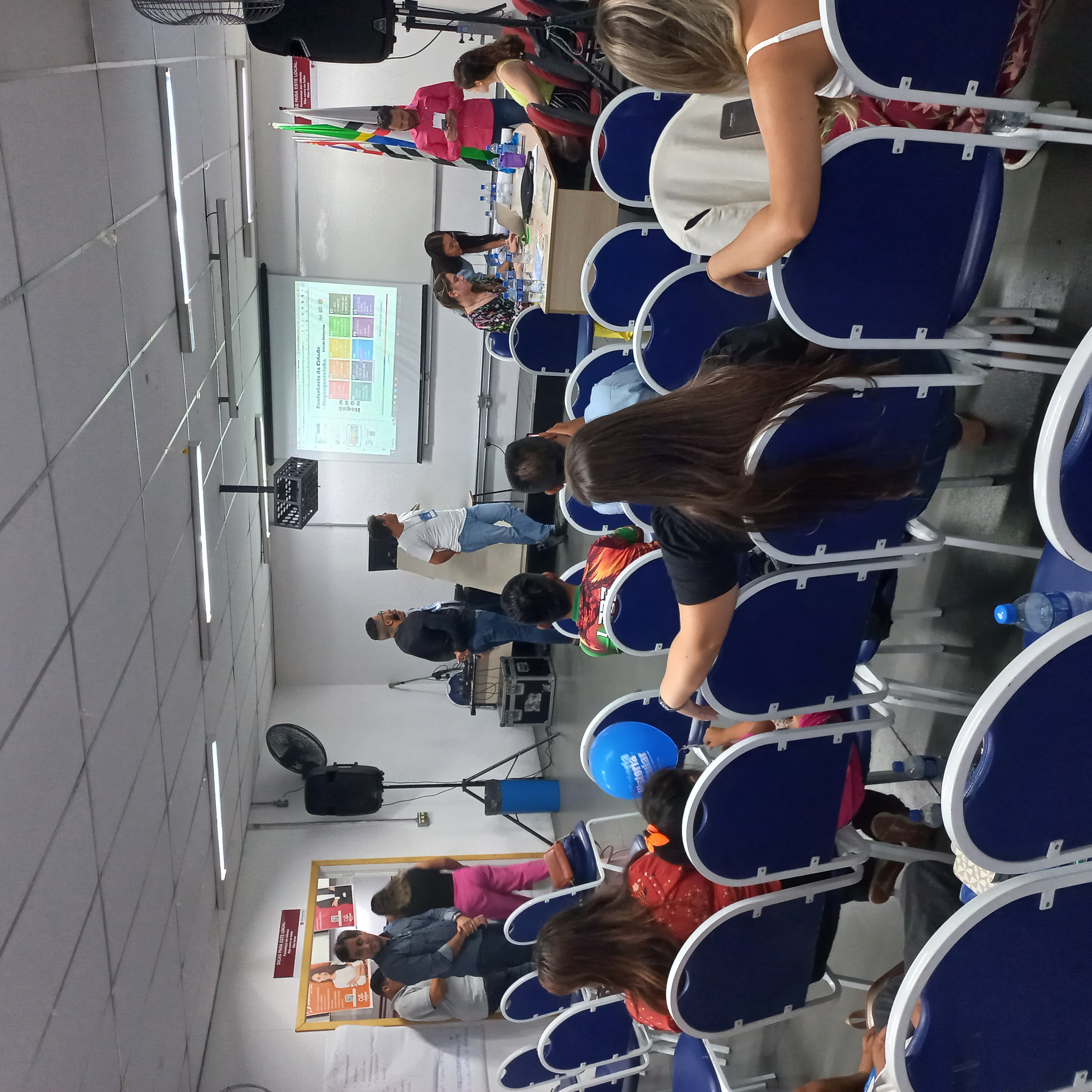
The Our City Plans team recently made strides with the successful implementation of the Our City Plans methodologies in Brazil, where they collaborated with esteemed partner institutions to spearhead transformative training sessions. Held at the 1st Conference of The City of Itaquaquecetuba and the Jaboatão dos Guararapes Forum 450 anos, these sessions were a resounding success. The focus? Fostering dialogue, engaging the community, and propelling sustainable urban growth. Invited to mediate the training process, Marcella Guarneri from Our City Plans provided guidance on the application of the innovative Strategic Visioning Workshop from our comprehensive Toolbox to inspire participatory planning. These methodologies were explored to discuss how they can help in shaping the future urban landscape in the municipality of Itaquaquecetuba and the city of Jaboatão dos Guararapes.
The Strategic Visioning Workshop seeks to define the city's long-term goals for the next 15 years. It lays the foundation for a strategic development plan that integrates global sustainability objectives into local initiatives. This plan localises the Sustainable Development Goals (SDGs) and the New Urban Agenda by aligning the city's agenda with national, regional, and local frameworks, providing a roadmap for progress. The workshop's vision serves as a catalyst, shaping ambitions and transforming challenges into actionable goals, and this was efficiently executed at the events.

Through this workshop, the Itaquaquecetuba Conference set its sights on achieving the targets outlined in the Sustainable Development Goals and the New Urban Agenda, aimed at elevating living standards and urban infrastructure by 2053. Stepping into a future defined by SDG 11 ‘Sustainable Cities and Communities’, they envisioned a city of urban inclusivity. A city where everyone enjoys safe, affordable housing, and revitalised informal settlements, complemented by accessible transport tailored for vulnerable communities. They also delved into the main national, regional, and metropolitan agendas, emphasizing its effective implementation. This involved creating a robust urban governance structure, laying the foundation for comprehensive support. The conference concluded by chartering an ambitious course for the future. The municipality of Itaquaquecetuba plans to institutionalise comprehensive municipal planning, involving dedicated committees and active civil participation. During the conference, delegates for each goal were elected and this strengthened the strategic plan, bringing champions that ensured that Itaquá's vision embodies progress, inclusivity, and prosperity for all.
Paralleling this strategic approach, the Jaboatao Forum 450 Anos set forth an inspiring mission. Aimed at collaboratively forging a long-term sustainable vision for Jaboatão dos Guararapes over the next two decades, they came up with an ambitious endeavor known as the Jaboatão 450-year vision. This initiative is driven by the profound belief in "Leaving no one, no place, and no agenda behind." Through the Strategic Vision Workshop from Our City Plans, they called for crafting policies that holistically tackle environmental, social, and economic concerns. In doing so, the city will not only advance local interests but also takes an active role in fostering a more inclusive, environmentally conscious, and equitable world.. By 2043, Jaboatão envisions itself as a city primed to face climate challenges, with an accessible, well-connected, and unified landscape. Its mission is to transform into a city that thrives on innovation, community engagement, and abundant opportunities for both its residents and the environment.
The Our City Plans toolbox is a game-changer in urban planning, and these events determined that it puts the power into your own hands. The training sessions showcased its user-friendly interface, where navigating through the methodologies became a breeze. Therefore concluding that this customisable toolbox empowers cities to take charge of their own development, fostering a sense of self-sufficiency and independence in the planning process. It is a testament to the belief that effective urban planning should be accessible to all, without any unnecessary barriers.